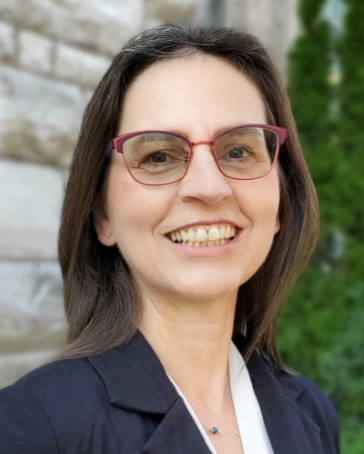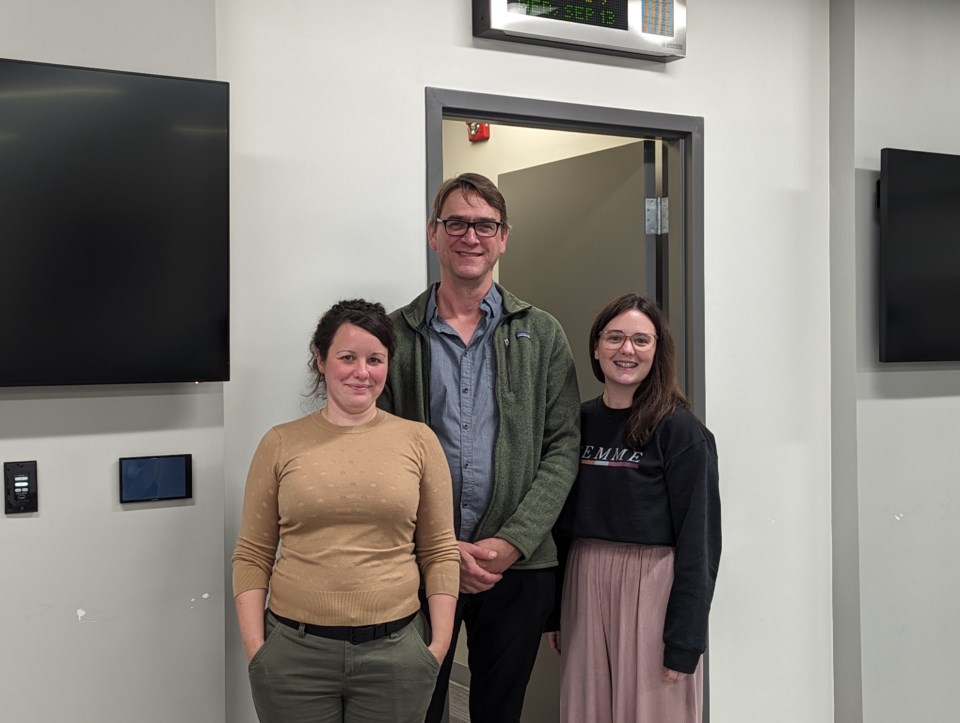Georgian College (Georgian) aims to graduate students with the skills and a mindset to be innovative thinkers and changemakers who can transform their workplaces and communities.
The college’s Honours Bachelor of Counselling Psychology (HBCP) degree is the only undergraduate program of its kind in Canada.
Program Coordinator Adam Stibbards says, “It is unique not only in the college system, but in the entire undergraduate post-secondary system. Our students complete a fourth-year honours research project, which gives them the opportunity to examine a phenomenon of interest in the field of counselling, learn valuable research and critical thinking skills, and this also makes them eligible for graduate programs that require applicants to have conducted an undergraduate honours thesis.”
Experiential learning through research
Like many other Georgian programs, the counselling psychology program includes an experiential component. Fourth-year student Ashley Melvin secured an internship at Waypoint Centre for Mental Health over the summer and has been given the opportunity to do some research work with them during the school year.
Dr. Zoe Hilton, Professor of Psychiatry, University of Toronto and Senior Research Scientist, Waypoint Centre for Mental Health Care, says, “At the Waypoint Research Institute, we value the creativity and innovation that students bring to the projects they work on. As students contribute to ongoing projects, they bring new skills and training and a fresh perspective that helps support the successful completion of our projects. Students may have the opportunity to build on that experience by turning placements into employment, which is of value to both the students and the Waypoint Research Institute. So overall, hosting students from Georgian College gives us the opportunity to build and strengthen relationships for future research prospects.”
Dr. Hilton explains, “For me personally, supervising and mentoring Georgian students is an enjoyable experience because it’s gratifying to be part of their lives and decision making at this stage in their education when they are deciding what direction they will take in their careers.
“To be able to have some influence on their path -- by providing them with a memorable internship or the chance to conduct research in a unique applied setting -- is rewarding. I’m especially happy to be working with Ashley because she is an excellent student. As part of the program, Ashley has been able to meaningfully contribute to a number of projects, such as developing some education for Waypoint’s traumatic incident support team, and she has a fresh perspective on research questions for her thesis research.”

Melvin is completing her undergraduate thesis, which will investigate the role of situational and cultural variables and how they may or may not influence perceptions of victim blaming in cases of intimate partner violence.
“Throughout the counselling psychology program, I have learned a lot about the research process. This includes academic writing, research methods, and statistics - all of which will play an important role in working on my thesis. Heading into this year, I feel that I have the knowledge I need and a solid foundation which I will continue to build upon as I learn new skills to answer my research questions.”
“I am excited to learn and work alongside researchers I admire. Dr. Zoe Hilton and Dr. Isabelle Deschamps are both experts in their respective fields and having the opportunity to work with them will be an invaluable learning experience - one that I will take with me in my future academic endeavours.”
Post-graduate studies
Melvin intends to continue pursuing her passion and studies in her respective field.
“After graduation, I am hoping to continue my studies at the master’s level. The program has prepared me for this goal through opportunities to learn clinical skills, research skills, in addition to opportunities for experiential learning. Graduate schools look for candidates with well-rounded educational experiences and this program is designed to provide these experiences to students.”
Why choose Georgian to study counselling?
Stibbards explains that students receive hands-on clinical training with highly skilled and experienced faculty members. “Students have extensive opportunities to see, practice, and get feedback in developing evidence-based approaches to counselling. Counselling skills development courses occur in lab spaces with state-of-the-art technology.”
He adds, “The program also includes two field placements and an internship, in which students learn about different approaches to counselling, program development, and research from supervisors working in the field of counselling psychology.”
Upon graduation, students have many different career opportunities or pathways available. “Many of our current students are applying to graduate programs in counselling psychology or related fields. Those looking to work directly after graduation are eligible to apply to a wide variety of positions, including but not limited to case manager, mental health therapist, support worker, disability counsellor, educational assistant, employment counsellor, intake coordinator, and residential worker.”
Ready to learn more about a career in counselling psychology? Visit GeorgianCollege.ca or sign up to attend Georgian’s Open House on Nov. 18.
